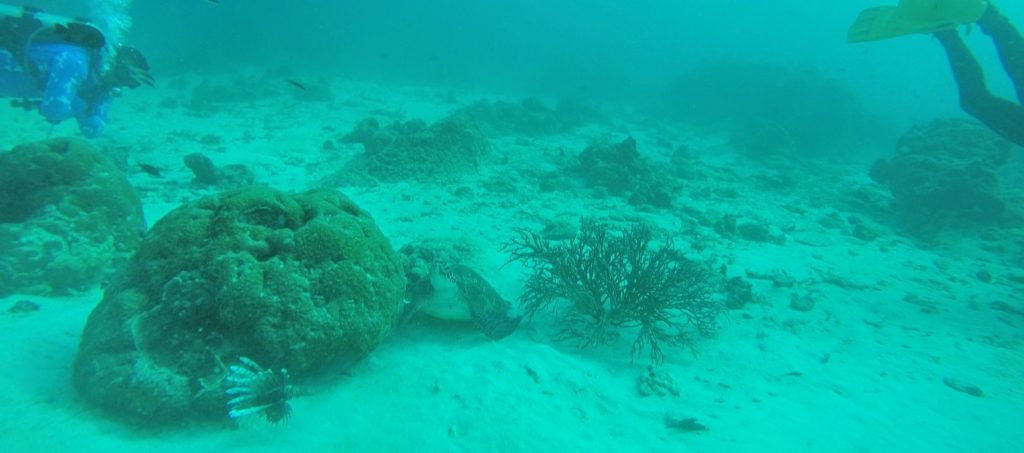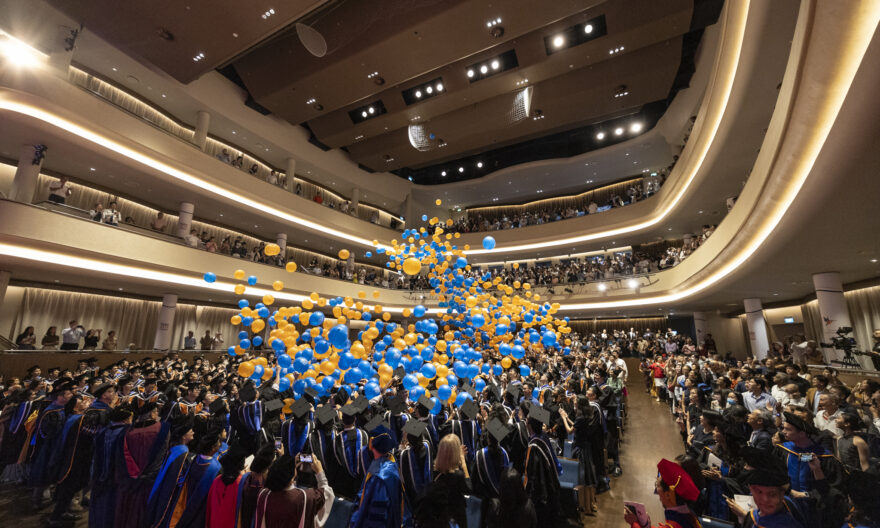Yale NUS students embark on a marine conservation trip to Pulau Weh
During the year-end break, a group of 15 students from Yale-NUS SCUBA Environments Association (YNSEA) went to Pulau Weh in Sabang, Indonesia for a marine conservation and scuba diving trip.
Primarily, this pioneer expedition was aimed at giving students a first-hand experience in scientific research methods, especially those pertaining to reef monitoring and conservation and on extension, to produce a longitudinal marine science research study of the area.
“The purpose of the trip was two-fold. The first was to qualify new members in either Open Water or Advanced Open Water diving certification. This ensured that members would be able to contribute to the conservation work on this trip and in the future. The second was to explore the possibility of developing a long-term marine science project on Pulau Weh. Various data collection methodologies such as fish identification and recce surveys of reef sites for the establishment of permanent reef transects (line across a habitat) were conducted,” shared Aidan Mock (Class of 2020), president of YNSEA.
The data collected from the fish identification processes were collated by students and uploaded onto an international Volunteer Fish Survey database system by international marine volunteer organisation REEF.
Kristoforus Bryant Odant (Class of 2021) shared: “By learning to identify fishes through cross-referencing against reef books, I went beyond just naming individual organisms by their scientific names. I started to learn about their behaviours, their roles in the ecosystem and their evolutionary strategies that shape how they are today. For example, I saw how goatfishes sit on top of brain corals in wait for wrasse fishes to come and clean it. From these direct observations, I gained a deeper appreciation of the delicate order and balance in the ecosystem. This is something that cannot be attained from textbooks and google searches.”
For the reef transects, a group of students went out to measure 20-25 metres of continuous reefs and analysed the coral health along the exact line of measurements. Large portions of a specific house reef were also scoped out by the team across several dives in order to assess the overall health of the corals, fish quantity and diversity, and also to identify areas of reef renewal.
In addition to the tangible reef data that was accumulated, the experience of data collection itself also produced non-tangible takeaways for several students.
For Numhom Jirasiri Techalapanarasme (Class of 2019), this trip gave her inspiration for an academic project that she was working on. She shared: “I have been planning to create an art sculpture about the origins of plastic trash. Having swam face first into a plastic bag in the ocean, I was disheartened that even non-commercialised areas like Pulau Weh are beginning to accumulate them. I plan to change my project plans to incorporate ideas about marine conservation to allow people to be aware of what they can do to reduce the amount of trash that ends up in the ocean.”
Echoing similar sentiments was Samen Yasar (Class of 2021) who recognised the inherent inefficiency of doing underwater surveys solely through scuba diving, and as such, has tentative ideas to solve this issue. “Underwater survey drones are almost non-existent. This lack of survey drones means that we also have a lack of data on marine life. One of my personal goals next semester is to build an underwater survey drone with the help of other student organisations,” she said.

For most of the students, the trip provided countless significant memories for them. Nonetheless, the most prominent amongst all would be moments of admiration of the aquatic world juxtaposed against moments of a deep realisation of how real climate change and reef destruction is.
“I was not just awestruck but also completely overwhelmed by the sheer beauty of the ocean and the richness of the richness of marine life, of which so much is worth protecting. It served as a gentle reminder for gratitude, humility and the need to cherish everything around us that is precious”, shared Rachel Wam (Class of 2021).
Moving forward, YNSEA has weighty visions. “In the summer, some of the members are planning to travel to Pulau Rawa to explore the suitability of the island for long-term scientific studies relative to Pulau Weh. Based on our final decision, data can then be gathered over the next 5-10 years and submitted to international organisations such as REEF. This way, the club can aid global marine conservation and research efforts,” Aidan said.





